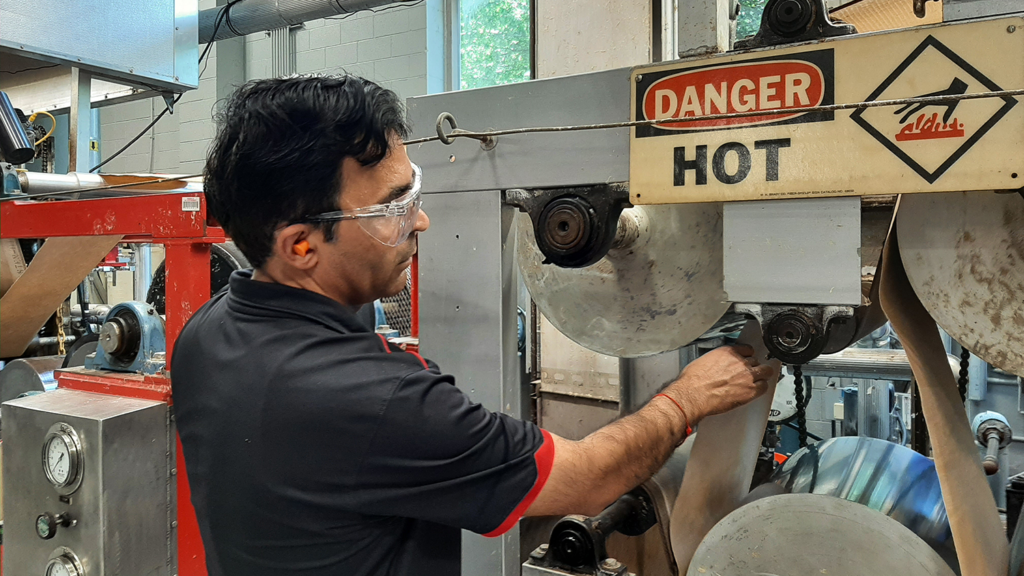NC State to Lead $10M Initiative to Decarbonize Forest Products Industry
A group of researchers from the NC State Department of Forest Biomaterials has been selected to lead a $10 million, public-private research initiative aimed at reducing greenhouse gas emissions in the forest products industry.
Funded by the U.S. Department of Energy, the initiative belongs to the Clean Energy Manufacturing Innovation Institute known as EPIXC, or Electrified Processes for Industry Without Carbon.
EPIXC is a multi-institutional effort devoted to supporting the expanded use of clean electricity for process heating — the use of thermal energy to prepare materials for manufacturing — across a total of six industrial sectors.
Those sectors — iron and steel, chemicals, petroleum, food and beverage, forest products and cement — account for more than 30% of emissions in the United States, largely as a result of fossil fuel-driven process heating.
“Our goal is to achieve decarbonization through electrification and by accelerating energy efficiency improvements,” said Lokendra Pal, the EJ Woody Rice Associate Professor and a University Faculty Scholar in the Department of Forest Biomaterials at NC State.
Pal is leading the initiative at NC State alongside Med Byrd, Ronalds Gonzalez, Hasan Jameel, Frederick Laleicke, Lucian Lucia, Sunkyu Park and Richard Venditti, all professors in the Department of Forest Biomaterials.
The researchers plan to examine the impact of implementing clean electric power systems and efficient heating technologies on the carbon intensity of producing packaging products, tissue and hygiene products, and wood products.
“Our department is a global leader in research and educational excellence in manufacturing wood, pulp, paper, tissue and hygiene, and packaging products,” Pal said. “Our pilot test beds and strong industry support make it a unique place for the execution of this project.”

Many paper mills and sawmills across the United States utilize boilers to generate steam for the drying of paper and wood. Some of these boilers operate off the burning of fossil fuels such as coal and natural gas, a process that releases greenhouse gases into the atmosphere.
Pal and his colleagues will work to convert steam-based boilers into clean electric power systems, offering a more sustainable source of heating which doesn’t produce as many emissions whilst improving efficiency.
Meanwhile, they will also study the impact of utilizing plasma-based technologies and ultrasonic- and microwave-assisted heating systems to further promote the sustainable production of paper and wood products.
Pal and his NC State colleagues will work alongside researchers from a variety of universities and federal agencies as part of the five-year initiative. They will also recruit the assistance of industry partners to raise additional funding and to support the development and deployment processes.
“To achieve the decarbonization of the industrial sector, it’s crucial that we foster and nurture collaboration across the public-private spectrum,” Pal said. “These partnerships bridge the gap between research and commercialization.”
EPIXC is one of two Manufacturing USA Institutes involving researchers from the Department of Forest Biomaterials at NC State. Established in 2014, Manufacturing USA is a nationwide network of public-private partnerships that convenes business competitors, academic institutions and other stakeholders to help the United States secure global leadership in advanced manufacturing.
Key partners include Arizona State University, University of Texas at Austin, Missouri University of Science and Technology, Navajo Technical University, Pennsylvania State University, Stanford University, Texas A&M University, Tuskegee University, Idaho National Laboratory, National Renewable Energy Laboratory, National Energy Technology Laboratory, among others.